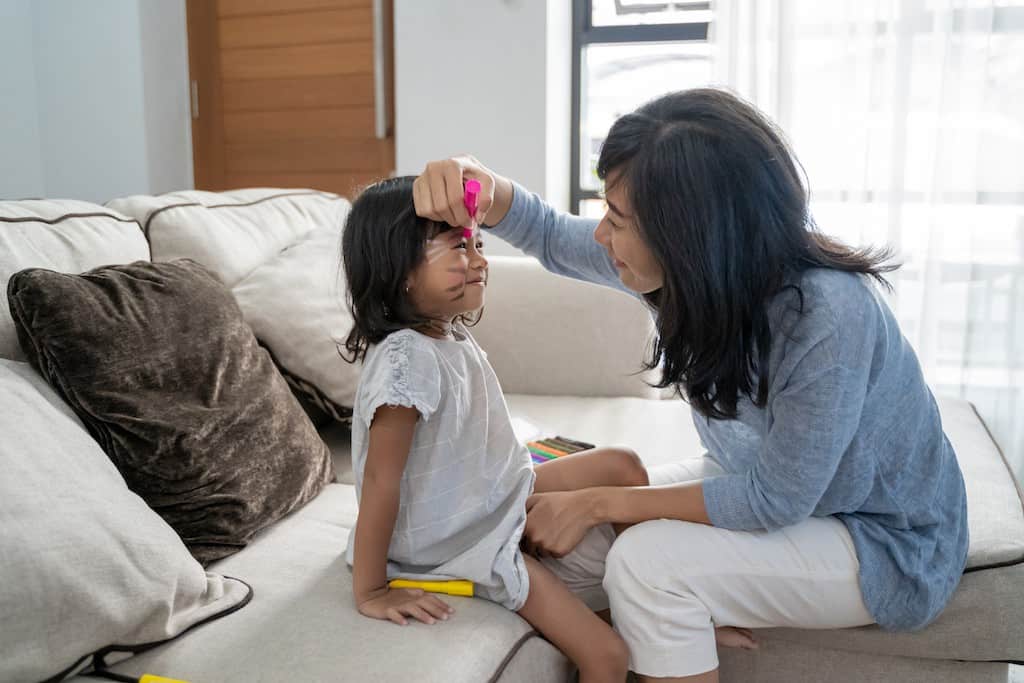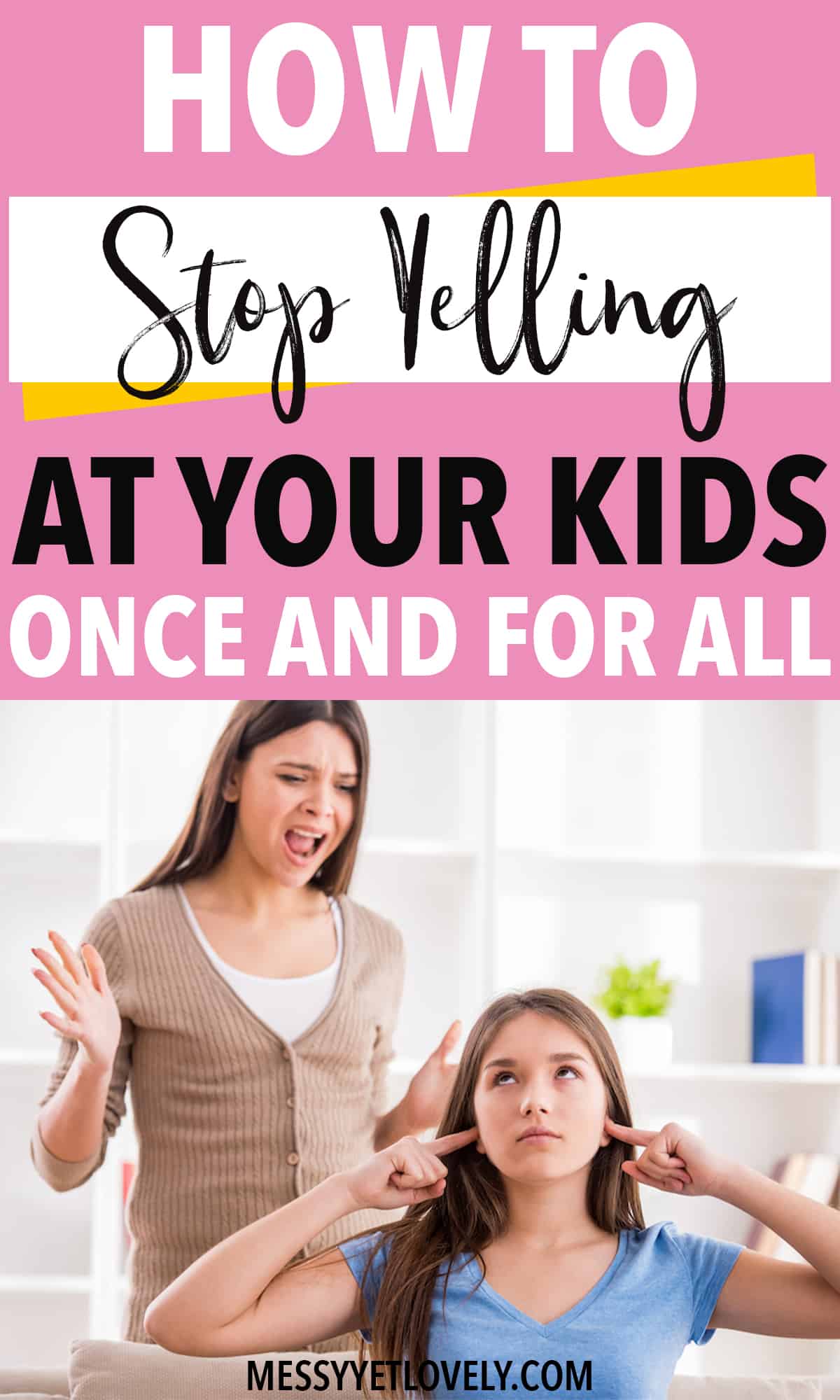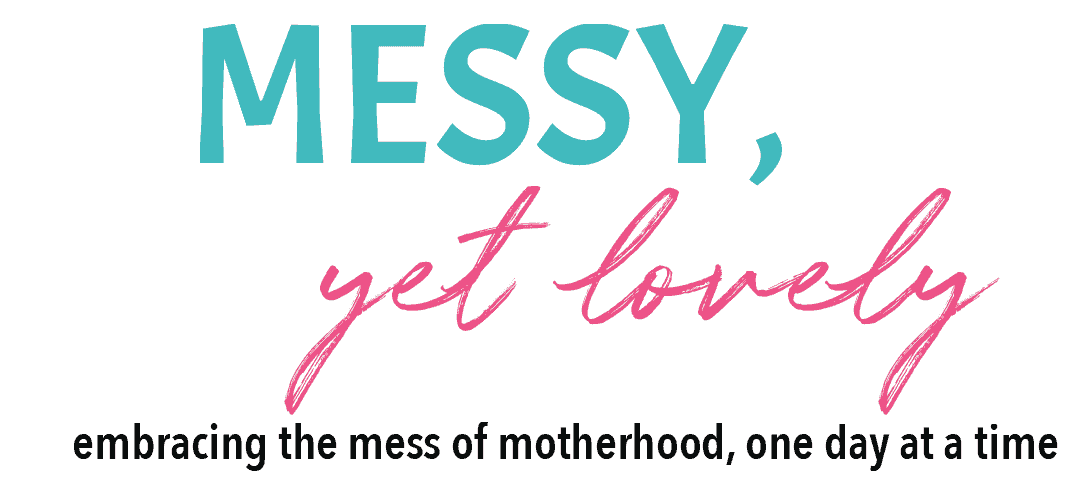You know the cycle. You tell the kids for the third time that it’s bedtime.
But for them, it seems like you are speaking from inside the invisibility cloak of Harry Potter.
They don’t hear you or bother to show any signs of listening as well. You raise your voice and suddenly they hear you.
The next time comes and the only difference is you have to yell harder.
You get caught up in the yelling cycle and kids also get used to your yelling that they get trained to act only when you are shouting like a mad person.
How tiring it is!
WHY DO PARENTS YELL AT KIDS?
Parents yell when we become overwhelmed by the emotions that arise as a result of kids repeating the same pattern of misbehaviors.
We also yell because that helps us to get their attention which otherwise seems hard to get. Or sometimes we yell, just because we are facing difficult emotions and we want to be left alone. But we can’t because we have to parent on our bad days as well.
Yelling is a bad habit you acquired because of the quick results it seems to give. Or it could be the way your parents disciplined you as a kid.
The good news is you can break the yelling habit if you learn to understand what triggers your yelling and develop better emotional control mechanisms.
THE PSYCHOLOGICAL EFFECTS OF YELLING AT KIDS
You might be able to scare off a child by yelling. The child may even obey what you asked of them. But over time they learn to tune your voice out and they won’t be scared anymore.
Research shows that yelling, corporal punishment, and shaming are significantly related to anxiety, low self-esteem, and aggressive behavior in children.
Yelling makes your child develop a fear for you and they feel more and more disconnected from you. They feel less understood and start lying because they don’t want to be yelled at.
Therefore, yelling is a bad strategy to discipline children. And even worse, kids learn it from you and start yelling when they are angry because that’s how they have learned to communicate when they get angry.
And let’s face it.
Do you feel good after yelling? No. And kids feel as bad as you, too.
So, let’s see how we can stop yelling at kids and adopt better discipline techniques.
10 WAYS TO STOP YELLING AT KIDS WHEN ANGRY
1. UNDERSTANDING THE TRIGGERS
The first step in stopping the yelling habit is finding out what triggers you. Here are some common triggers:
- When kids don’t listen to you the first time you ask them to do something (or even after multiple times repeating your request)
- You are going through a difficult phase in life unrelated to parenting
- You haven’t had time for yourself during the day and you feel overworked and underappreciated
- You are simply tired and don’t have the patience to be nice, so you yell to get quick results
There can be so many triggers and what triggers one parent may not trigger the other.
What I want to tell you is, if you want to stop yelling at kids, you have to put in some serious work. And if you stick with what I am gonna say here, you can stop the yelling habit for everyone’s sanity.

ACTION PLAN
Starting today, note down what triggers your anger. And note down how many times you yell in a day.
Do it for a week or two. You will start seeing patterns, and that’s what we are looking for.
Now we can brainstorm and find out how we can stop these behavior patterns from repeating (it could be your behavior or the kids’).
For example,
If you see a pattern of kids’ disobedience as the reason, think about why they behave as they do.
Often, their difficult behaviors occur as a result of an internal problem. You will need to go deep into it to see what causes it.
Is it because they are in the middle of doing something interesting?
Or is it because you call them only for doing chores and they get no intimate connection time they are craving for? Or is it simply because they are hungry and tired?
Kids misbehave to test boundaries and to get attention from you, even if it is negative attention.
Sometimes the yelling happens because you’re frustrated about not being able to finish your chores on time. You get no help, you are tired and just want to get done with the day.
You can solve this problem by planning ahead or getting help from the family.
Likewise, write down how you can solve each issue so that the same patterns don’t repeat.
Dr. Laura Markham suggests that you cross off each day that you don’t yell in a calendar so that you have a visual representation of your improvement.
2. ONE TECHNIQUE TO MAKE KIDS LISTEN WITHOUT YELLING
Why do our kids act as if they don’t hear us? And that’s the tipping point for most parents.
Then we yell in order to get their attention. In a way, by doing this we are also training our kids to listen only when we yell and not when we speak nicely ten times before yelling.
What I like to do is pretend I am in the grocery store. Or in a place full of adults. How do we talk to people in such social settings?
We walk up to them and talk in a soft voice.
Do the same with your kids. Instead of yelling from the kitchen or upstairs, walk to them and say what you want them to do politely.
They are more likely to listen to you when you do this. Because you are asking them respectfully. Also, they can’t pretend they didn’t hear you because you are standing right in front of them.
3. RESPECT WHAT THEY ARE DOING
I love positive parenting because kids are given the respect they deserve and as a result, they are more likely to obey our requests.
In authoritarian parenting, when parents expect a child to do a task, they don’t consider the child’s feelings. They just give the order, and if the child doesn’t obey, parents resort to yelling, punishments and even spanking.
When it comes to children listening to our requests, timing is important.
Imagine this scenario.
Your kid is painting using watercolor and she seems to be lost in the activity. She is immersed in it and oblivious to what’s happening around her.
And that’s when you ask her to come to eat her food. What are the chances that she will listen or want to come immediately?
Here, instead of scolding or yelling, you can walk to her and comment on her work.
“Oh, I see you are enjoying the coloring session. I came to call you to eat dinner. Do you want to come now or after ten minutes?”
Now she can choose to come after ten minutes (reduce the time if there is a reason to hurry). She doesn’t feel compelled or feel disrespected.
Sometimes, when I go to my daughters, I try to show interest in what they are doing and ask questions. They are always happy to answer. It is also a great opportunity to connect with them. When you are connected, you are most likely to get rewarded by cooperative behavior from kids.
This method is so much more peaceful than barking from across the room and getting everyone’s adrenaline pumped up.
You can save so much energy and frustration by choosing this strategy. Always have empathy for children and consider yourself in their shoes.
Timing is always important because not only kids, adults also would not want to be dragged away from the middle of doing an interesting activity.
Related: 30 simple family rituals to start to bring your family closer

4. PRETEND THAT YOU HAVE AN AUDIENCE
This a tactic I use to refrain from yelling.
Have you noticed how calmly you respond to kids’ misbehaviors when there are family members or friends around? Or imagine your boss is standing in the room. Would you shout at the kids?
It also shows that you have the ability to control anger and the urge to yell. It’s only a matter of intentional practice and you can get there.
5. GIVE TIMEOUT TO YOURSELF
I don’t believe in giving timeouts to children. I have done it only once and felt it only made them more embarrassed and they cried more. Plus, timeouts are a form of punishment that kids have to endure because they couldn’t control their feelings.
Parents usually give timeouts thinking kids will get the time to “think” through their misbehavior and learn a lesson. But what kids need when they misbehave is a responsible adult giving them gentle guidance and correction.
It’s upon us parents to teach them emotional regulation. Timeouts only make them feel bad for expressing their emotions.
But when YOU take a self-inflicted timeout for yourself, you don’t feel bad because you need it for your own emotional regulation.
During the time out, you can take a few deep breaths, count from 10 to 1, or any other calming techniques you can use.
You can say to your kids, “I am feeling so angry right now, I will deal with this when I have calmed down.” It also teaches kids the proper way to release emotions without yelling or being rude to others.

6. FILL THEIR LOVE BUCKET
I would say “connection” is the most important tool when it comes to disciplining kids.
If you fail to establish a strong bond with your kids by finding the time to connect, be sure that they will want to co-operate less and less as they grow up.
Spend one-on-one time with kids daily by doing an activity you both enjoy and you will find that disciplining gets easier. Because kids don’t want to disappoint a parent who takes so much effort to be with them and also they constantly feel the unconditional love that you so carefully take the effort to express.
“Connection before correction” is a mantra that you would always want to remember. You definitely need to correct kids, but as time passes they will get used to tuning out your voice because you are only doing the “correction” part. And that’s when you find the need to yell.
Related: How to connect with their kids using their love language (5 love languages explained)
7. REMEMBER THEY ARE IN YOUR TEAM
Like connection, empathy is another gentle parenting technique that will help you to prevent yelling at kids.
Whenever you feel like you are going to lose it, remind yourself that they are kids and they need all the help you can give them to solve conflicts, regulate overwhelming emotions, and make decisions.
In those moments, I like to repeat to myself the following things,
They are kids, they have been on this earth for only a few years, and they have so much to learn. And I will be their teacher.
I am their guide. They are not my enemies for misbehaving and making me angry. Because they are only little humans who have not quite figured it out fully.
And I will be the mom who teaches them to be good humans.
When I talk to myself like this, suddenly I experience a shift in my perspective and energy and I go from “ready to snap” to “ready to be the best mom ever”.
It’s when you see children as people who make your day miserable, that you feel blinded by anger.
Include them in your team and see yourself as their guide and as a leader.

8. STOP THE YELLING HABIT USING JOURNALING AND AFFIRMATIONS
I am a big believer in journaling and affirmations to change old habits and behaviors.
I love using my bullet journal for journaling. What I do is, I journal my progress every day. You can use any plain notebook too. When you write daily, shifts start to occur in your brain. And your subconscious mind starts to respond to your conscious efforts. Slowly, over time you can find that you have better control over the situations that once triggered you.
Another tool that will help you to alter your subconscious beliefs and behavioral patterns is — affirmations.
I say affirmations daily for all areas of my life. For parenting, I use the following affirmations.
- Today I will choose kindness over anger
- My child is still learning and I will be a model of kindness
- As the adult in this home, I can choose kindness above all else
- I am their guide and may all of my words be kind and gentle today
9. PAMPER YOURSELF WITH LOTS OF LOVE
Parenting is hard work. I could never fathom the extent of the work that mothers do until I became a mother and started experiencing it myself.
We play so many roles without a break 24×7, and it’s normal to feel overwhelmed. And if you don’t schedule regular self-care breaks, you will end up being an overwhelmed mess that no one wants to come near to.
So take the break, mama, you deserve it. Here are 15 ideas for self-care activities you can do as a busy mom.
Related: 13 things that no one tells you about being a mom

10. WHAT SHOULD HAPPEN AFTER YELLING
By no means, we are perfect and we lose it from time to time. But we all feel guilty for yelling at kids, right?
But don’t worry, you can still turn the situation around — by apologizing. Your kids should know that you are a normal human being and not perfect at all.
You can apologize to them by saying,
“I am sorry I yelled at you. I got mad and couldn’t control myself when you didn’t listen to me when I asked you to stop fighting with your brother. I should have taken the time to calm myself before interrupting.”
I always try to apologize to my kids for my own improper behaviors and tell them that I am working on controlling my anger, so I can be a better mom to them.
And when you apologize, it helps their self-esteem too. Because when you take responsibility for your mistakes, they understand emotions are acceptable and that everyone makes mistakes, but can learn from it to grow to become a better person.
And please understand that if you feel guilty for yelling, you are already a good mom, you simply have to give credit to yourself that you are trying.
Implement these strategies and let me know how it has helped you in the comments below.
More parenting posts:
- 18 must-know strategies to discipline a strong-willed child
- 11 characteristics of a strong-willed child(and how each one will help them in the future)
- How to teach your child to be independent
- 10 things a daughter needs from her mom
- How to get kids started on doing chores
- 11 effective tips to stop sibling rivalry
- How to raise kids who are not addicted to screens
- How to raise a grateful child instead of a complaining one
If you love what you are reading, please take a moment to PIN and SHARE!

